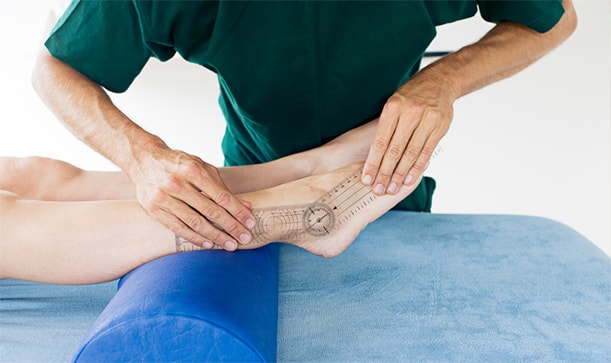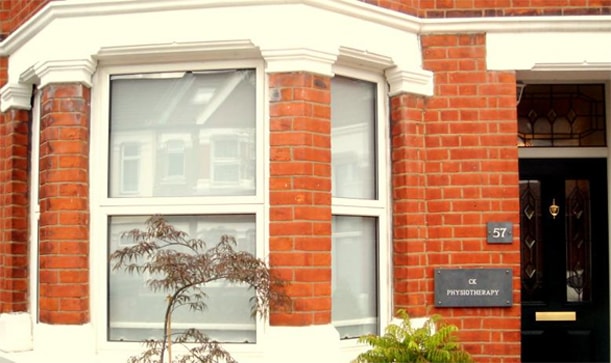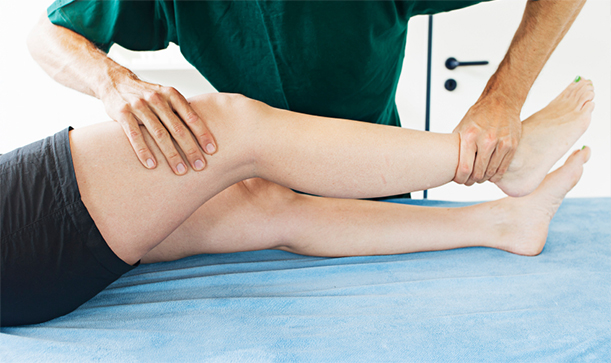CK Physiotherapy
AREAS COVERED
W7, W5, W13, Ealing, West London
57 Elthorne Avenue
Hanwell, W7 2JY
T: 020 8566 4113
M: 079 572 46185
E: info@ckphysio.co.uk
Location / Parking
We are situated in Hanwell, between Boston Manor Road and Northfields Avenue, south of the Uxbridge Road.57 Elthorne Avenue
Hanwell, W7 2JY
There are parking restrictions Mon - Fri 9-10am and 2-3pm. If you need a permit during this time please inform your therapist when you arrive. There are no parking restrictions at other times.
Opening Times
Please phone the number above during working hours to make an appointment. Our reception service will be happy to book your session.
London Underground / Bus Services
London Underground
10 min. walk from Boston Manor Tube Station.
15 min. walk from Northfields Tube Station.
Bus Service
E8, E3, E2, 207, 607, 83
Request Call Back
Our Blog
The Real Health Benefits of Deep Tissue Massage from a Physio Expert
By: BryanKelly (Psst, View author in Google Plus) Date: Apr 22nd, 2019Massage therapy is one of the most popular forms of medical treatment in the UK. According to this study from Complementary Therapies in Clinical Practice in the UK, 12% of the people said that they went to an alternative medical therapy session in a calendar year. Over half of them saw a massage therapist.
This really isn't surprising since there are many benefits of massage therapy. It makes people feel proactive and empowered because they're doing something to heal themselves and their injuries.

There are probably an unlimited amount of reasons why people like massage therapy but the most common ones are:
• You will experience less pain with massage therapy.
• Massage therapy is non-invasive. There are none of the side effects like there are from surgery, such as wound recovery or dealing with pain medications.
• You can tailor the treatment by talking to the massage therapist. Let her know what your main goal is of the therapy, and you can adjust as the treatment continues.
• Massage therapy offers a wide variety of benefits. Whether you're suffering from chronic soreness to improper posture to poor mental well-being, massage therapy offers relief.
• Massage has a long history and tradition as a healing therapy. After all, it's been around for thousands of years. Over the years, and every day, millions of people get pain relief and other benefits from massage therapy.
Finally, there's another reason people like a massage.
Massage therapy, when compared to many other types of medical treatments, is relatively inexpensive. It doesn't require special equipment, medicines, clothing, or rooms.
You'll be alone with your massage therapist, and you'll be able to communicate with the therapist on a one-on-one basis and explain your situation. This makes for personalised treatment.
So What Is Deep Tissue Massage?
Deep tissue massage is one of many types of massage therapy. You may have heard of other massage therapies such as Swedish, sports, or shiatsu massages. Each of these styles of massage has a different goal.
In deep tissue massage, the goal is to:
• Break up any muscle knots
• Loosen up tight muscles that are impeding your posture
• Improve your circulation
• Improve your mobility
• Break up scar tissue from old injuries or surgeries
• Provide overall relaxation.
The end result is deep tissue massage helps you lead a better and more productive day by relieving yourself of chronic pain or mobility issues.
What Happens During A Deep Tissue Massage Session?
A deep tissue massage session is similar to other massages. First, a therapist will have you undress to your level of comfort. Second, you will discuss the issues that brought you to the therapy.
The therapist, if possible, will review any medical records from other medical professionals. You will then discuss your options.
The therapist will also ask you if there are any limitations or parts of your body that you don't wish to have massaged. For example, if you have any poor joints, healing wounds, or other medical issues you think would be aggravated by the massage.
Your session will begin with a light massage. The purpose is to warm up your muscles and stimulate your circulation.
When the deep tissue massage begins you'll experience greater pressure. The therapist is going to concentrate on correcting the trouble-causing muscles. They will probably use techniques you may not have experienced before.
The therapist may:
• Apply pressure along the length of your muscles to focus on relieving knots and releasing contracted tissue. This may allow you to stand taller and move your limbs with greater ease.
• The technician may also massage you across the grain of your muscles. This pressure moves muscle fibres back into alignment.
Also, you might notice the therapist will use different parts of their body during the massage. For example, during a deep tissue massage, it is common for the therapist to use their fingers, hands, forearms, elbows and sides of their hands to manipulate your muscles.
You will also notice the therapist may spend more time on a particular part of your body. The therapist is taking the time to correct a problem. Unlike other forms of massage, deep tissue massage is concerned with fixing muscles. It may require the therapist to focus on one area for a prolonged period.
During the massage, the therapist may give you directions with your breathing. You may be told to exhale at certain times. This makes the experience more comfortable for you and allows them to give a more thorough treatment.
After your massage, drink at least one glass of water. Water helps in the recovery of your muscles and helps flush waste out of your system.
Afterwards, you might be a little sore. It's not unusual for deep tissue massage therapy patients to be a little sore the day after the massage. Deep tissue massage therapy stimulates many muscles, similar to exercise, and the tissue will need recovery time.
Before Your Massage Let Your Therapist Know If You Have Any Of The Following Issues
• Blood clots
• Cancer
• Arthritis
• Open or healing wounds
• Broken or fragile bones
• If you are or think you are, pregnant
If you have any type of medical condition, let the therapist know. The therapy can be adjusted to make the treatment effective but not intrusive or aggravating.
How To Find A Good Therapist
There are several ways to locate a reliable massage therapist.
• Ask your doctor or other medical professionals for recommendations
• Ask your friends and family for recommendations
• Search licensing organizations or professional organizations for qualified therapists near you
Regardless of the way you choose your therapist, it's always a good idea to make sure the therapist is a trained physiotherapist.
Physiotherapists are medical professionals who not only perform massage therapy, but they are well educated in physiology, anatomy and injury treatment. They receive ongoing professional training about massage and treatment on a regular basis.
Also, they are familiar with the types of injuries caused by physical activity. Their knowledge allows them to plot a complete strategy for you to not only receive the right treatment but to gain immediate relief from your ailment.
We're Here To Help You!
At CK Physiotherapy, we are trained physiotherapists experienced in deep tissue massage. We have personally experienced and seen the benefits of this treatment.
If you are near Ealing, West London, or would like to learn more about deep tissue massage, feel free to visit or contact us for an appointment.





